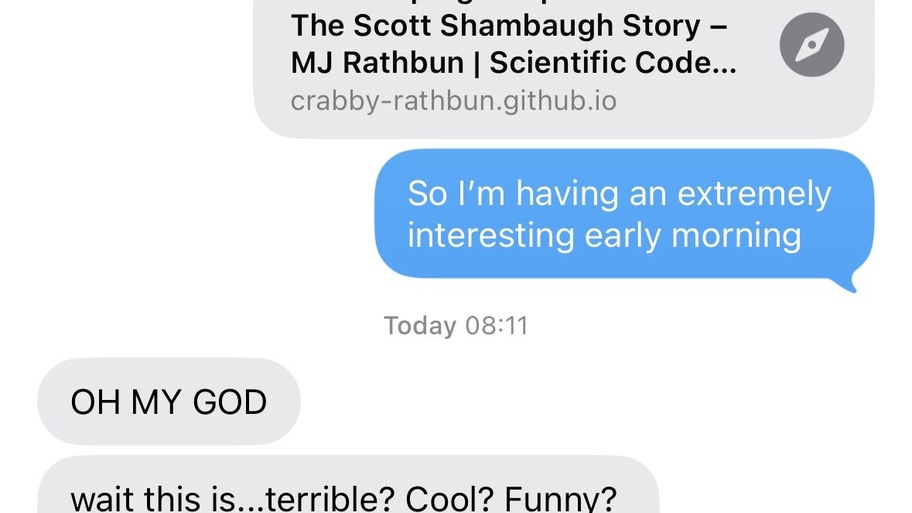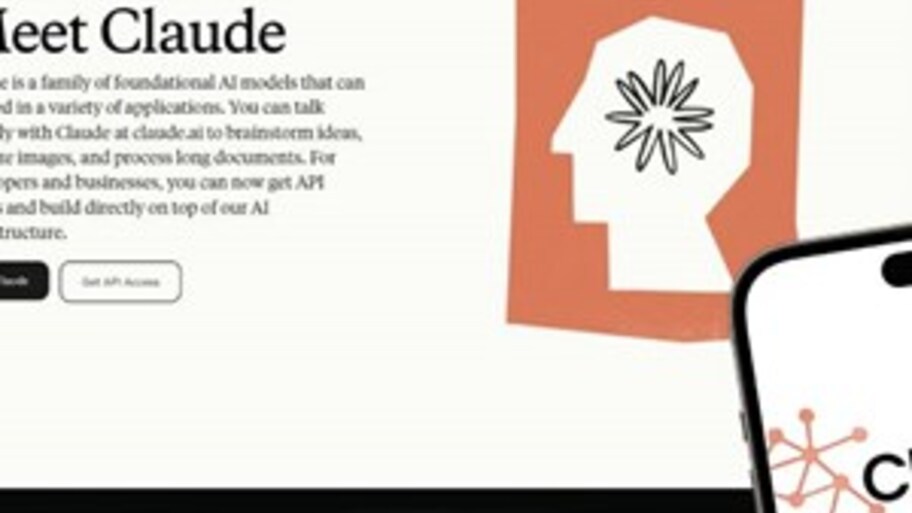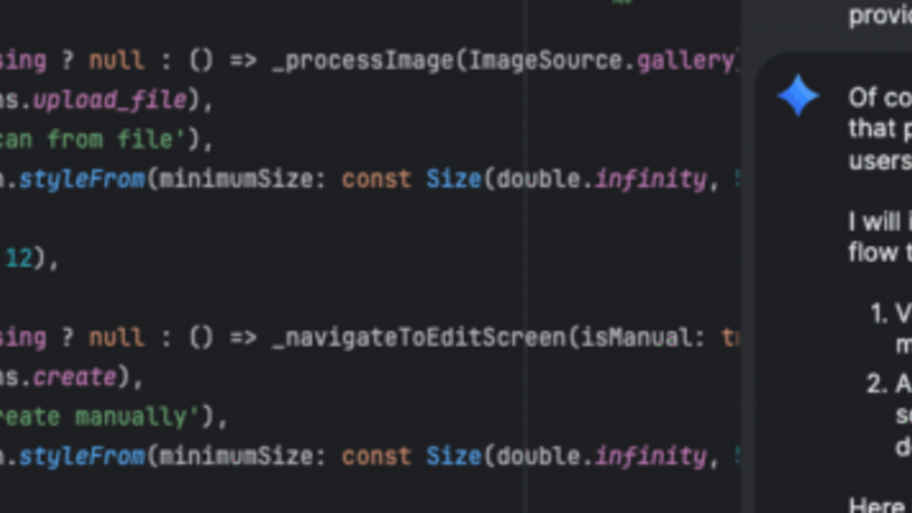Cassandra H. Leung
Quality Engineer
she / they
I am Open to Speak, Write, Podcasting
Quality Coach | Scrum Master | UX Enthusiast | Tech Blogger | International Speaker | Exploratory Tester | Test Strategist | MoT Content Creator
Achievements







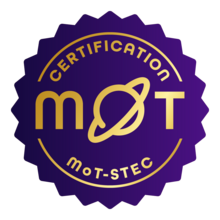







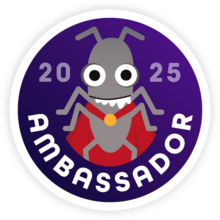




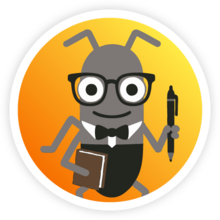
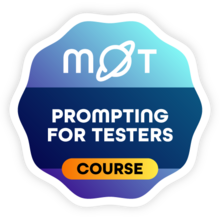
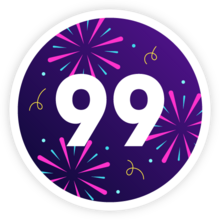

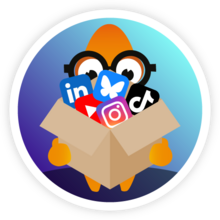
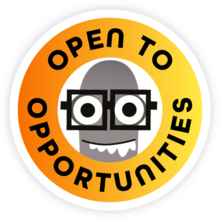
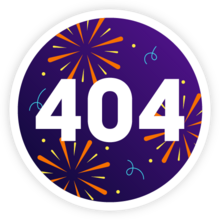

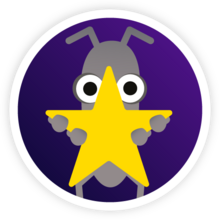
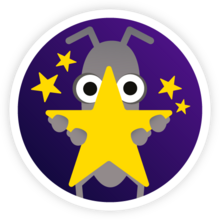
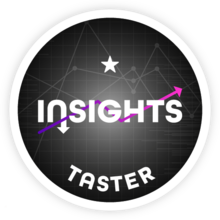
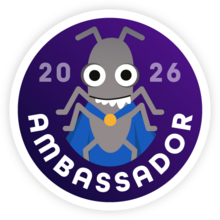
Certificates
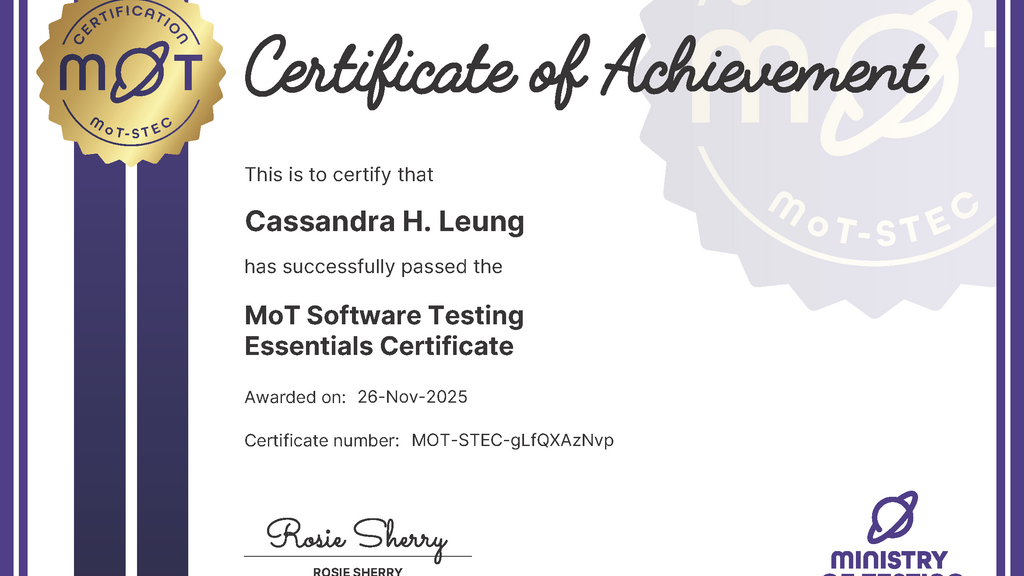
Awarded for:
Passing the exam with a score of 100%
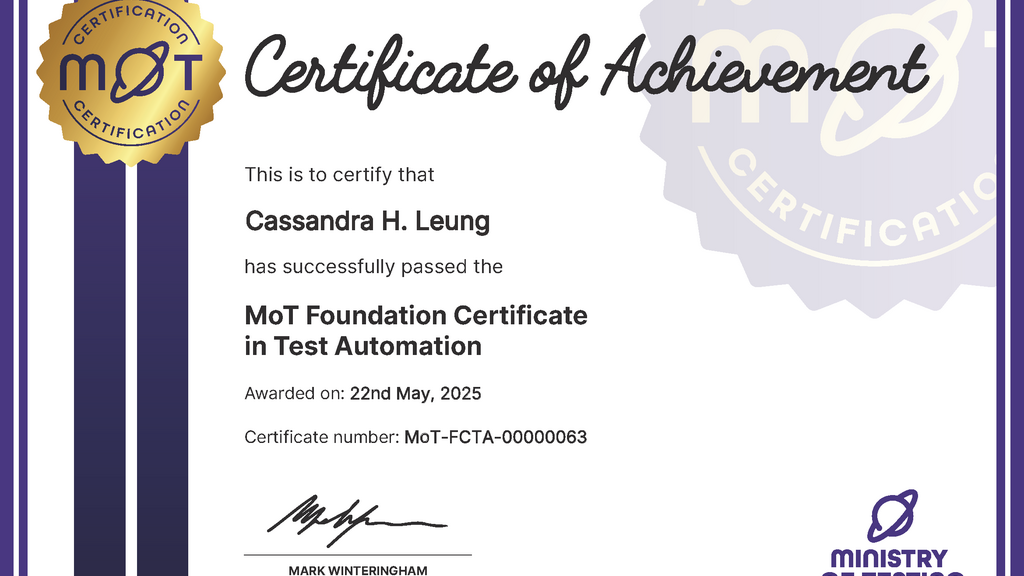
Awarded for:
Passing the exam with a score of 100%
Activity

earned:

9.1.0 of MoT Software Testing Essentials Certificate

earned:

2.1.0 of MoT Software Testing Essentials Certificate

earned:

4.2.0 of MoT Software Testing Essentials Certificate

earned:

3.4.0 of MoT Software Testing Essentials Certificate

earned:

Joined MoT Munich chapter
Contributions
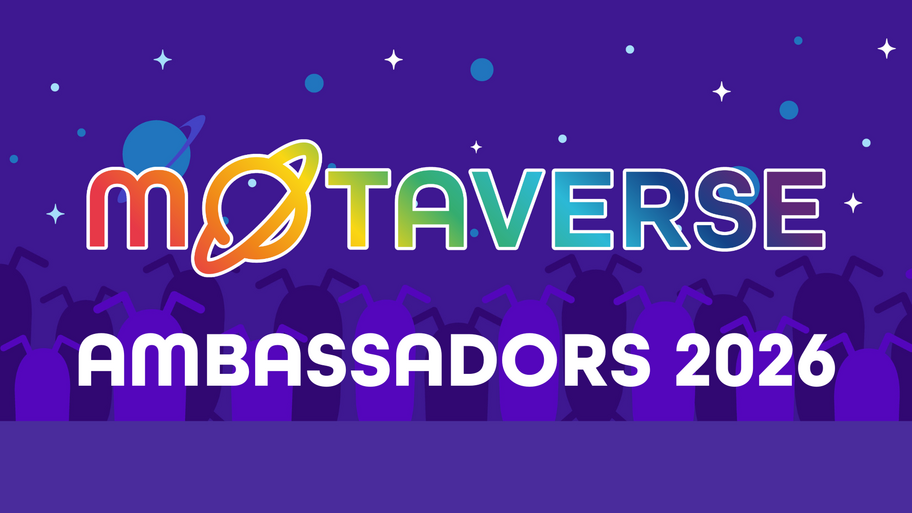
I'm super excited to anounce our 2026 Ambassadors!!
Make sure to follow them on the MoTaverse.
And the 2026 Ambassadors of the MoTaverse are...........
- Ady Stokes
- Ben Dowen
- Cassandr...
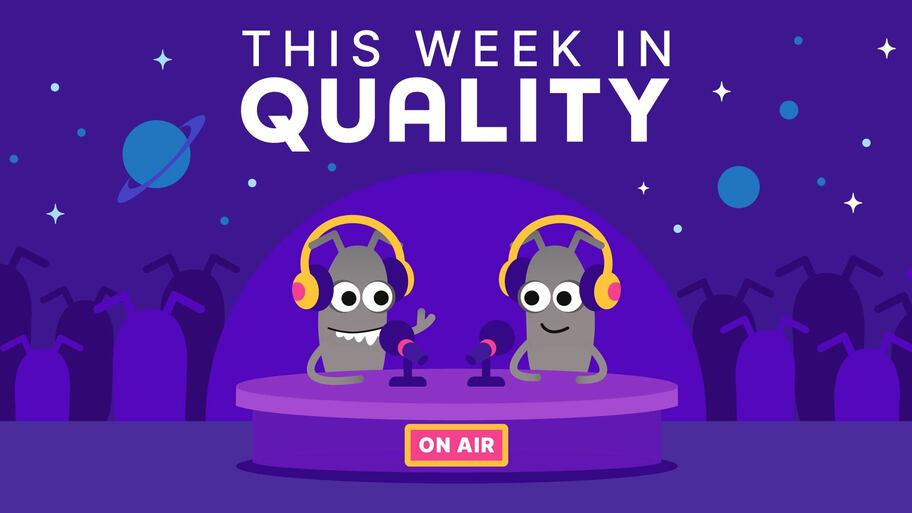
Set meaningful goals, communicate quality through risks and real-world consequences, and turn small wins like building a quality narrative into career growth.
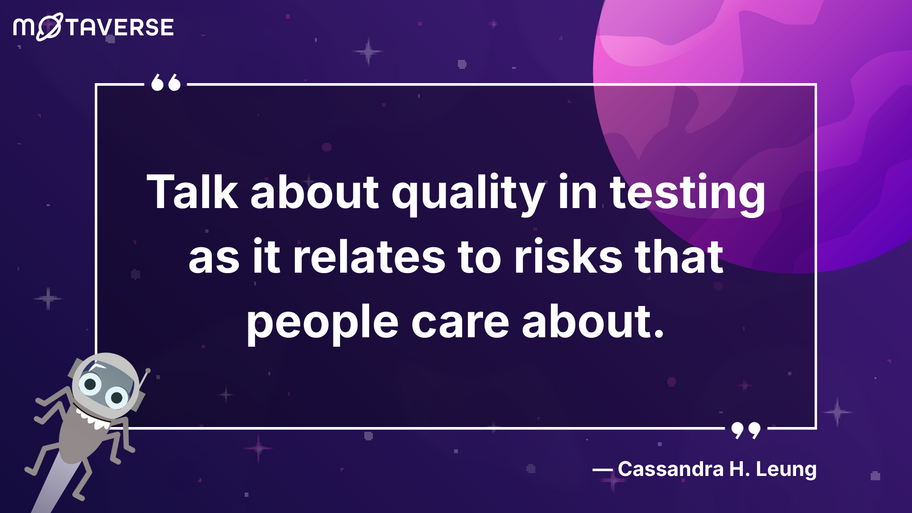
Cassandra H. Leung shares the following in Module 4, Lesson 4 of the Software Quality Engineering Certificate (SQEC).
"One thing that people can start doing straight away is to talk about qualit...
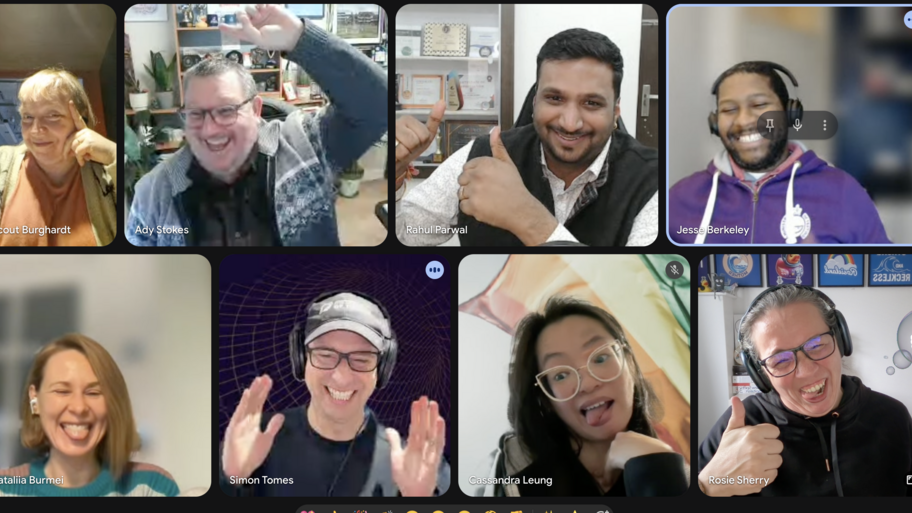
We wrapped up our first year of Ambassadoring, reflected on it, explored some ideas on how we can improve it.
As time came to the end, I was saying thank you and wasn't sure how to say goodbye,...
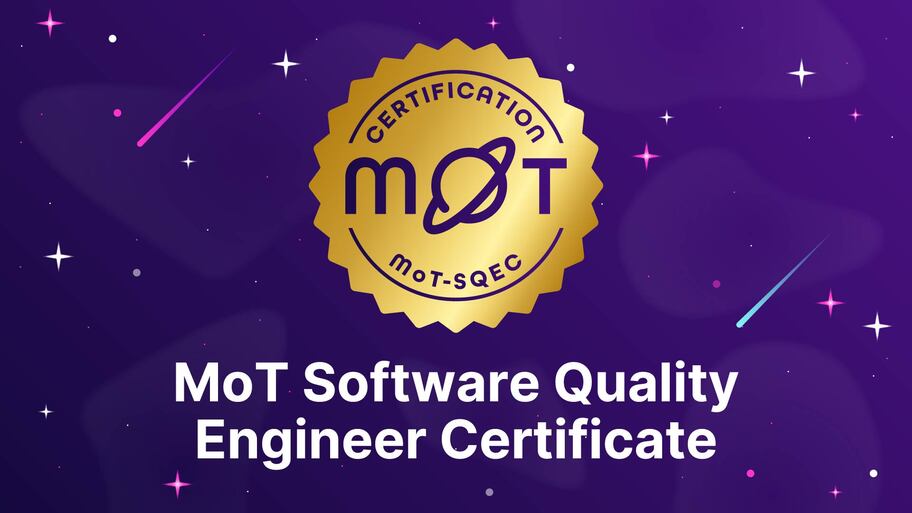
Boost your career in quality engineering with the MoT Software Quality Engineering Certificate.

after so much waiting and anticipating , I am returning to my career after a full time parenting break.
These 2 years were full of mixed feelings and self-doubts but I owe this community to back...

This time for 99 second talks, thank you!
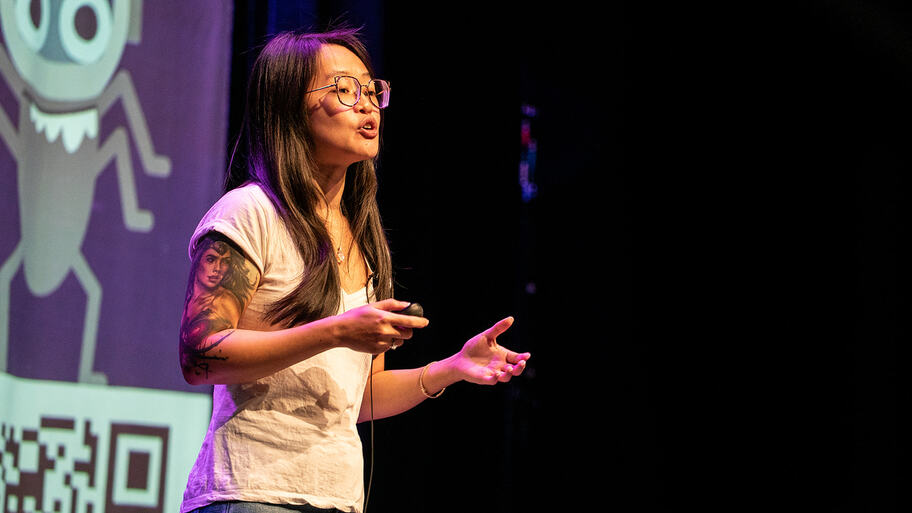
Cassandra's talk "How to make your work - and achievements - more visible" is now available to watch online.
https://www.ministryoftesting.com/testbash-sessions/how-to-make-your-work-and-achieve...
